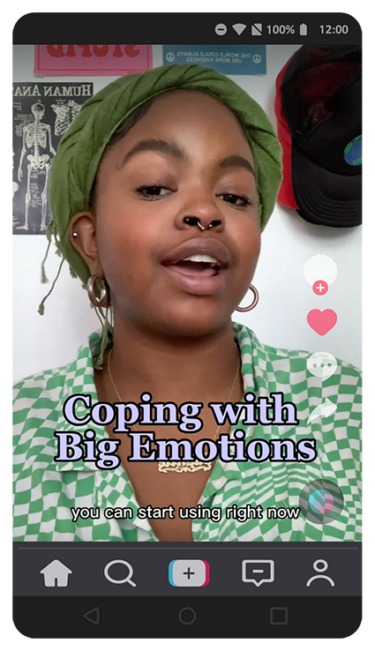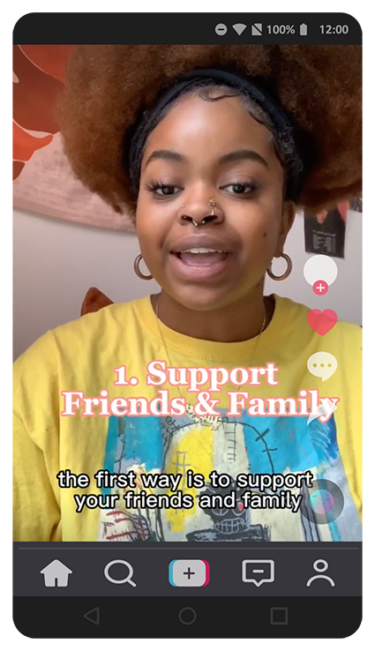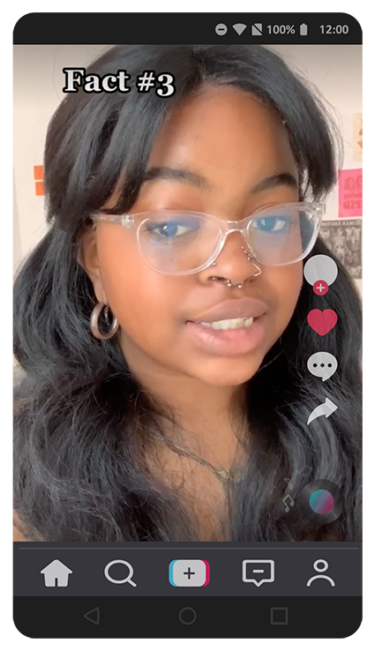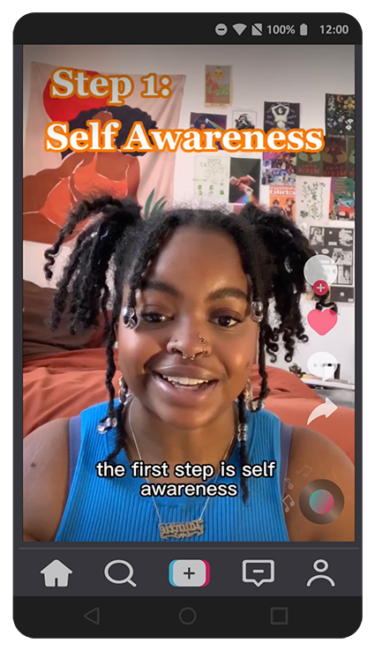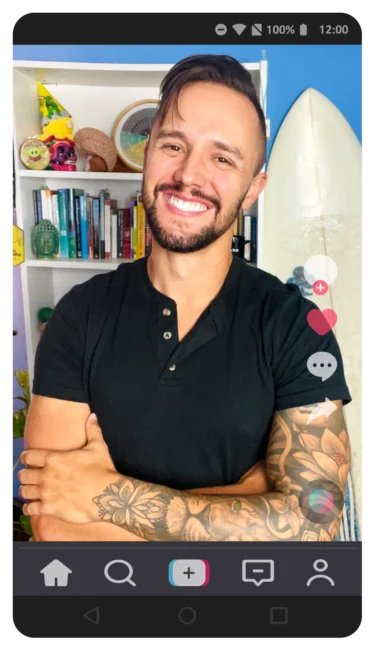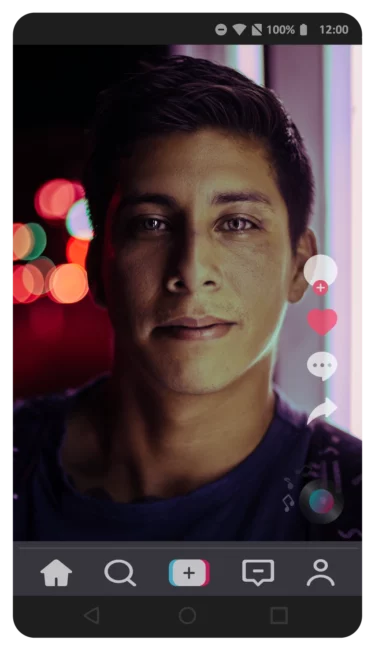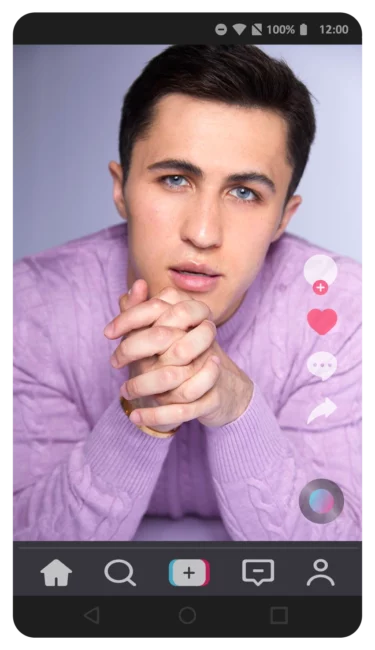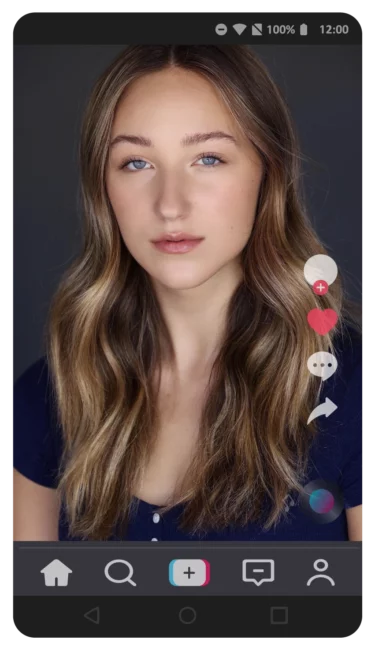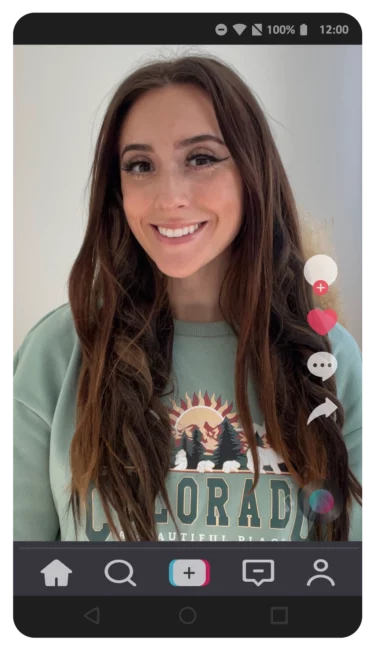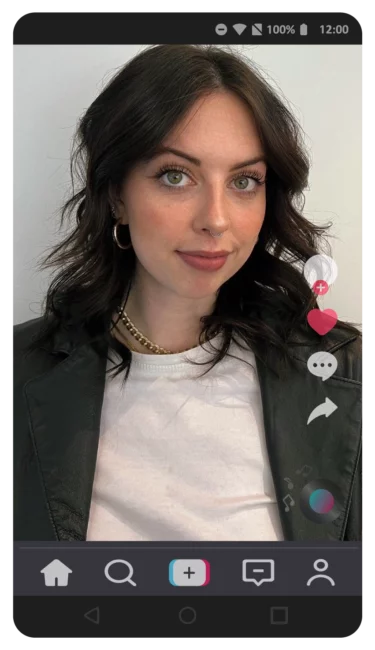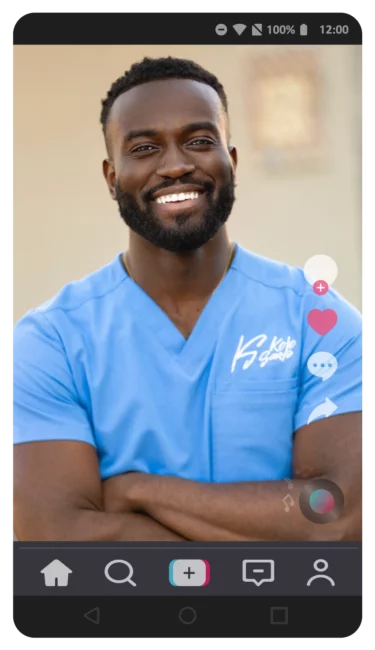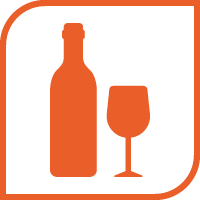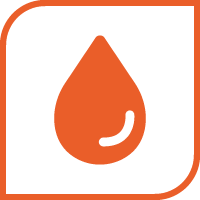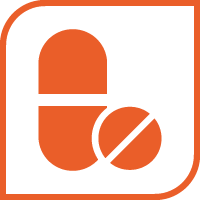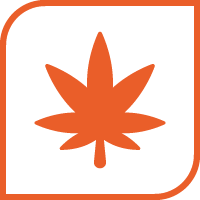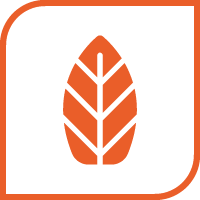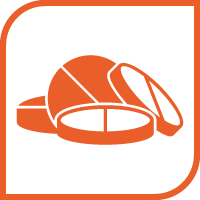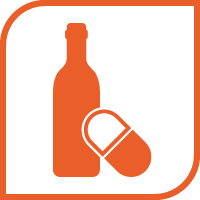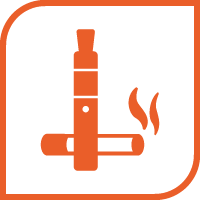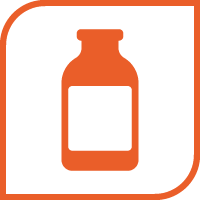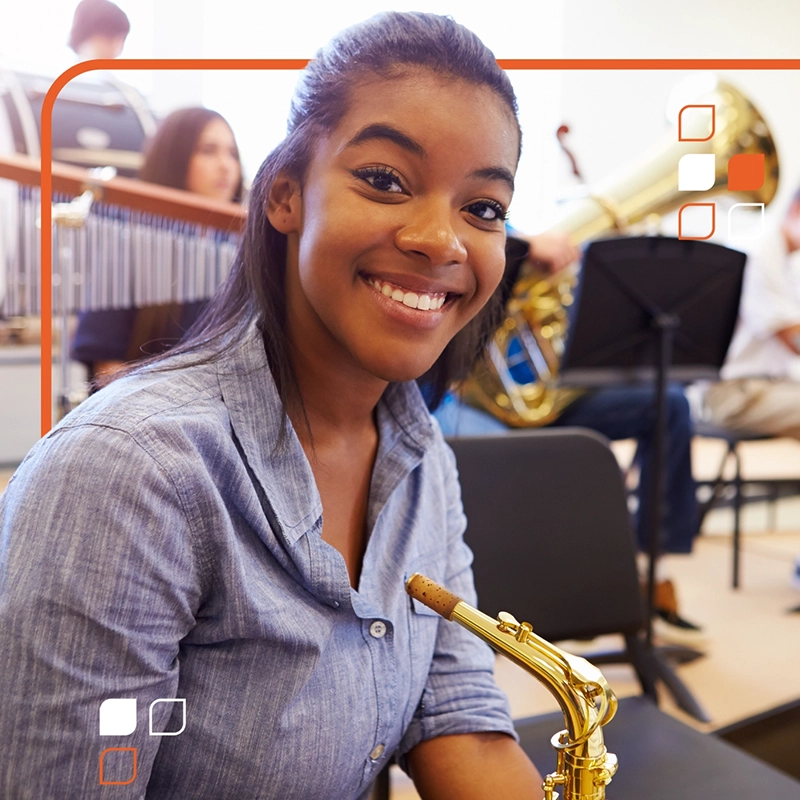Are you an adult looking for resources? Visit the Getting Candid homepage.
Are you a young person looking for some ways to prevent alcohol and drug use in yourself and others?
You’ve come to the right page.
Keep scrolling for videos and guides that can help you stay informed and give you some tools to help others out too. You’ll find more about the #ItsTheLittleThings campaign, information on alcohol and other common drugs, and suggestions for talking to your friends and family about substance use.
Meet the Influencers
The Connection Between Mental Health and Substance Use
Many young people experience mental health or substance use disorders without even realizing it.
- 1 in 3 young adults (aged 18-25) in the U.S. experienced mental illness in 2020.
- 1 in 6 adolescents (aged 12-17) in the U.S. experienced a major depressive episode in 2020.
- 1 in 7 young adults (aged 18-25) had a substance use disorder in 2018.
Did you know that substance use disorders often co-occur with mental health disorders? Poor mental health can contribute to the development of a substance use disorder, and using alcohol or other drugs can contribute to mental health problems. Some young people may turn to substances to try to feel better, without realizing that substance use can actually have the opposite effect, and further worsen mental health. Seeking out help and resources for mental health and substance use is not only normal but is key to helping yourself and others feel their best.
If you or someone you know is having a mental health crisis, please call or text the Suicide and Crisis Lifeline at 988.
LGBTQ+ Affirming Care
Finding the right provider is important for one’s physical and mental health but the process can be difficult. LGBTQ+ people have an added challenge finding a provider who supports their identity. We have provided information below and a guide to help support providers, families, and youth.
For a quick reference, view our Questions for LGBTQ+ Youth and Their Parents/Caregivers to Ask Care Providers Guide. For definitions of terms used below, or of other LGBTQ+ terms and acronyms, we recommend referring to this glossary by Michigan State University.
What Is LGBTQ+ Affirming Care?
Affirming care means a health care provider affirms (supports or encourages) their patient’s identity and recognizes how it impacts life and health. An affirming provider takes an active role in working to bridge cultural differences (American Association of Marriage and Family Therapists, n.d.). LGBTQ+ affirming providers “embrace a positive view of lesbian, gay, bisexual, transgender and queer identities and relationships and address the negative influences [of] homophobia, transphobia and heterosexism” on health and wellbeing (American Association of Marriage and Family Therapists, n.d.). LGBTQ+ affirming care is medical care that uses this approach to be respectful and empowering to LGBTQ+ clients. This type of care moves beyond neutrality and instead recognizes and affirms how LGBTQ+ identity can be connected to unique strengths, needs and concerns.
Why is LGBTQ+ Affirming Care Important?
Unique Health Needs
LGBTQ+ people often experience stigma and discrimination based on their sexual orientation, gender identity and gender presentation. The stress of this discrimination puts LGBTQ+ people at a higher risk for mental health challenges like anxiety and depression and using substances like drugs and alcohol. This high risk of health conditions means it is especially important for LGBTQ+ people to have access to health care that they feel comfortable using.
A 2023 Trevor Project survey of LGBTQ+ youth found that 67% reported experiencing symptoms of anxiety, 54% reported experiencing symptoms of depression and 41% seriously considered suicide in the past year (The Trevor Project, 2023). A separate 2015 report found that LGBTQ+ youth were 30% more likely to heavily use alcohol, 60% more likely to use cannabis, 190% more likely to inject substances and 230% more likely to use cocaine than their straight, cisgender peers (Human Rights Campaign Foundation, Partnership for Drug-Free Kids, 2015).
Mental health and substance use challenges among LGBTQ+ youth may be further exacerbated by the unique obstacles and treatment they face, including conversion therapy. Conversion therapy, also known as sexual orientation gender identity change efforts or sexual orientation change efforts, comprises methods that “aim to change a person’s same-sex sexual orientation to other-sex, regardless of whether mental health professionals [or lay individuals] are involved.” (Glassgold et al., 2009). Peer-reviewed studies of conversion therapy indicate that there is little evidence supporting its effectiveness and that many individuals experience harm from these practices. Both the American Psychological Association and American Psychiatric Association have made statements opposing conversion therapy practices since 2022 and 1997, respectively. Despite this, approximately 57,000 youth ages 13-17 in the United States will be subjected to conversion therapy before turning 18 (Mallory et al., 2019). LGBTQ+ youth who experience conversion therapy are 25% more likely to use alcohol or marijuana than LGBTQ+ youth who do not (The Trevor Project, 2022).
LGBTQ+ people may also face identity-specific health needs across their life course, such as grappling with sexual and gender identity, considering medical gender transition and exploring options for having children (Ard, K., 2016).
Barriers to Care
LGBTQ+ people sometimes experience discrimination in health care settings, either from individual providers or by systems not designed with the needs of LGBTQ+ people in mind. This can range from clients being referred to by the wrong name or gender pronouns, to the use of slurs, denial of care or even violence from providers. When an LGBTQ+ person experiences discrimination from their health care provider, they may feel unsafe, stop trusting their provider and even stop seeking out care.
According to the 2023 Trevor Project survey, of the 81% of LGBTQ+ youth who indicated they wanted mental health care, 56% were not able to receive it. Many of the respondents described fear of discrimination in health care settings as a key reason for not receiving mental health care: around a quarter cited specific factors like “fear of being outed” (27%) and “fear of my identity being misunderstood” (23%) (The Trevor Project, 2023).
Affirming care can support LGBTQ+ clients in navigating their unique needs and barriers in an empowering way.
Opportunities for Support
Role of Health Care Providers
In assessments conducted by the National Council for Mental Wellbeing in 2021 and 2022, 52% of youth identified health care providers as a trusted source of information on substance use, a finding that positions providers to have a significant impact on youth attitudes and beliefs about substance use. (Sloyer et al., 2023).However, the same respondents indicated often feeling uncomfortable speaking to providers; only 7% ranked health care providers as the adults they felt most comfortable speaking with about substance use and mental health (Sloyer et al., 2023).
Health care providers are in a valuable position to convey key information to youth and help increase trust in the medical system. Health care providers can use the guide to connect with LGBTQ+ patients’ needs and to share to the importance of LGBTQ+ affirming care. Providers can also encourage parents and caregivers to use the guide to support their LGBTQ+ youth in connecting with an affirming health care provider.
Role of Family
Though young people state that family is important to them (Sloyer et al., 2023) and can be a source of joy and support (The Trevor Project, 2022), almost half of youth surveyed say that fear of getting parent or caregiver permission is the reason they do not have access to mental health care (The Trevor Project, 2023). On the flip side, youth cited being more comfortable having difficult conversations with parents and caregivers than health care providers (Sloyer et al., 2023). This presents parents and guardians the opportunity to bridge the gap between youth and providers by helping youth access information about mental health and substance use from trusted and affirming sources. Parents and caregivers can help ease fears about receiving care by proactively supporting youth – not just when they are accessing mental health care, but also when they seek affirming care. Parents and caregivers can use this resource to support their LGBTQ+ youth in connecting with an affirming health care provider.
View our Questions for LGBTQ+ Youth and Their Parents/Caregivers to Ask Health Care Providers Guide before visiting with a health care provider.
Role of Youth
Parents and caregivers of LGBTQ+ youth may not be aware when discrimination or identity-insensitive care happens, or they may not understand the scope or negative impact of that care. They may also be unfamiliar with how to talk to providers about gender and sexuality or how to effectively question potential providers about beliefs and areas of expertise. Providers can encourage youth to use How To Find Affirming Care to work with their parent(s) to find a provider that is LGBTQ+ affirming or to reach out to providers directly if the parent or caregiver is not supportive of the youth’s LGBTQ+ identity.
Learn More About Substances
Find Messages with facts about these substances that you can share with friends and peers
Motivate Others
So what do you say? Check this guide for how to say what you need to say when you’re talking with friends about alcohol or other drugs.
Youth Voice
How to Be a Mental Health Advocate
There is a common misconception that you must earn a degree, get special training or hold a high-powered job to be a leader. However, you are an expert of your own lived experienced and your voice has the power to motivate and guide others. Learn more about your leadership style and creating a vision for change.
- Knowing Your Strengths and Leadership Style Guide helps you evaluate your personality type and leadership strengths.
- Leading Through Change Worksheet helps you develop a vision to guide you on your path towards community change.
Telling Your Story of Lived Experience
Your first-hand experience as a young person gives you unique wisdom about what young people need to heal and thrive. Your story can be your most powerful tool to help people understand what is necessary to make real change. Learn more about how to craft your story and advocate for change.
- Motivating Others with Your Voice of Lived Experience handout for strategies on how to strategically share your story of lived experience.
- Crafting Your Advocacy Message handout helps you create an impactful message that inspires commitment and action.
These blogs share teens’ perspectives and experiences with substance use and mental health.

Getting Candid Youth Ambassador Isadora Paul conducted an interview with outreach specialists at James Bowie High School in Arlington, Texas. Read their insights on the impact of substance use on students, how school administration can make a difference and opportunities to support prevention efforts.
Things to Share
Find posts below that you can use on Instagram and Twitter to share fun and interesting facts to reduce stigma around mental health and substance use.
Share Your Why
Hear from teens on why they don’t use alcohol or drugs.
This three-part video series highlights the stories of six young people on why they choose to abstain from alcohol and other drugs and how they cope with life’s stressors.
Share and post these peer-to-peer videos on social media. We encourage other youth to “share their why” by recording a video and posting with the hashtag, #shareyourwhy.
More Resources
More Resources for Youth
Courses teach teens in grades 10-12, or ages 15-18, how to identify, understand and respond to signs of mental health and substance use challenges among their friends and peers. Find a course near me.
This guide provides information on how to talk and think about sexual orientation, gender identity/expression, and mental health, identifies ways to cope with stress and emotions and discusses how to get support for yourself and others.
These resources help you support the ones you love, while ensuring you take care of yourself while doing so.
YPR’s mission is to provide the life skills and peer supports to help people recover from substance use disorder and reach their full potential.
Check out their latest campaigns and join the This Is Quitting Campaign.
Stay in Touch
To learn about new opportunities and educational events, send us your email address: GettingCandid@TheNationalCouncil.org.
This project is supported by the Centers for Disease Control and Prevention (CDC) of the U.S. Department of Health and Human Services (HHS) as part of a financial assistance award totaling $1,500,000 with 100% funded by CDC/HHS. The contents are those of the author(s) and do not necessarily represent the official views of, nor an endorsement by, CDC/HHS or the U.S. Government.

